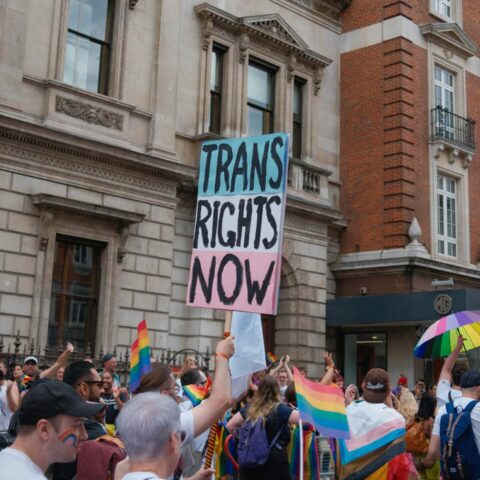Where are Immigrant Women’s Rights in the RJ fight?
by Katherine Sheldon, Choice USA summer intern
As someone involved in the feminist movement, I read about the fight for reproductive justice in the news daily. One thing missing from the national media, however, is immigrant and undocumented women’s rights. Thankfully advocacy groups such as the National Latina Institute for Reproductive Health (NLIRH) and the National Coalition for Immigrant Women’s Rights (NCIWR) have been working to bring this topic to the public eye. But with immigrants making up 13% of our population, that’s roughly 40 million people, I have been left wondering; why aren’t more people talking about immigrant women’s voices in mainstream conversations of reproductive justice issues?
While Emergency Contraception being available over the counter is fantastic, I found it disheartening that the impact of it not being available immigrant women was rarely spoken of. The opposing side spoke mostly about “the children” and told us that it was fine to require a driver’s license. But what did that mean for the Americans that don’t have a license? Or the immigrant woman who can’t get a license? Should we deny them the health care they are in need of just because they aren’t able to produce a laminated item with their name and age? Thankfully EC is now available to all women, but this was far from the only roadblock immigrant women had to proper healthcare.
The passing of S. 744, better known as the “Immigration Reform Bill,” holds many implications for immigrant women. Undocumented women will have to wait 10 years before they are able to obtain a green card. Once a green card is obtained, they would have to wait another 5 years before becoming a citizen. This means that though these women are working, paying taxes, and have obtained green cards or citizen ship, they will have no health insurance for 15 years. No Medicaid. No food stamps. No ObamaCare subsidies. The amendments suggested that would bring more equality to women in the bill were all struck down.
The NCIWR has started a campaign called I’mFighting#4Immigrant Women* to give immigrant women and their allies a voice in the immigration reform currently on its way to the House. I was at a training recently done by the NLIRH, and the speaker told us a story of a woman who was an immigrant. She became aware she had serious reproductive health issues, but was unable to access care in the United States. This woman swam across the Rio Grande into Mexico for treatment from a Mexican doctor, then paid a drug cartel to swim her back across to America. She did this for 5 years. 5 years of risking her life, risking never seeing her family again, risking violence from the drug cartels helping her, just to access health care. So much for the right to life, liberty, and the pursuit of happiness.
For the women who don’t have the luxury of swimming the Rio Grande on a drug smugglers’ back, there are always Detention Centers. Don’t let the name fool you. These are far from the Junior High classroom you were sent to for chewing gum. In addition to the horrible conditions and violence that often occur in these Detention Centers, many women have to give birth in these centers. A common occurrence in these centers is women being shackled while giving birth. This involves chaining women’s arms, legs, and even stomach to a table; as if pushing a baby out of your lady bits isn’t uncomfortable enough. Many women experience extreme pain and have back problems after due to not being able to properly adjust their body during the birthing process. As of October 2012, 33 states still allow women to be shackled during birth. There are still cases of women being sterilized without their consent, or through false information. For immigrant women who are not fluent in English, the medical terminology can be difficult to understand, and it is not uncommon for doctors to mislead these women about what the procedure they are about to do will entail. Sterilization is not completely unknown to the U.S. though. More than 7,600 North Carolinians were sterilized under the state’s eugenics program, which lasted from 1929 until 1974.
The Reproductive Justice movement has a responsibility to fight for the rights of all women. As these atrocities continue to be brought more into the public consciousness, I hope the fight for immigrant and undocumented women’s rights are also brought out from the shadows. Not only are these women our friends, neighbors, and coworkers; but also, the Rio Grande is probably really cold.
 Katherine Sheldon graduated with a Bachelors of Science in Women’s Studies from California State University, Sacramento. She is an advocate for equal rights and a self-proclaimed feminist.
Katherine Sheldon graduated with a Bachelors of Science in Women’s Studies from California State University, Sacramento. She is an advocate for equal rights and a self-proclaimed feminist.
*To be an ally for immigrant and undocumented women, please follow this link to sign the I’mFighting#4ImmigrantWomen campaign. Your voices need to be heard nationwide. It’s fast. It’s easy. It’s effective. It’s affective.


